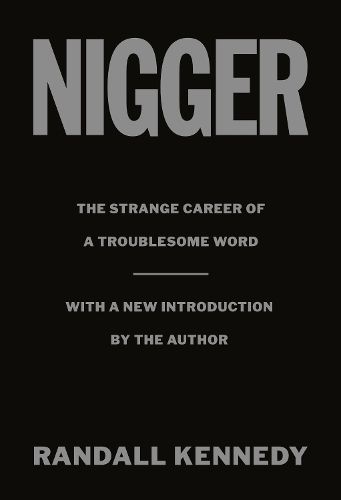Readings Newsletter
Become a Readings Member to make your shopping experience even easier.
Sign in or sign up for free!
You’re not far away from qualifying for FREE standard shipping within Australia
You’ve qualified for FREE standard shipping within Australia
The cart is loading…






The twentieth anniversary edition of one of the most controversial books ever published on race and language is now more relevant than ever in this season of racial reckoning-from one of our most important and perceptive writers on race (The Washington Post).
In addition to a brave and bracing inquiry into the origins, uses, and impact of the infamous word, this edition features an extensive new introduction that addresses major developments in its evolution during the last two decades of its vexed history.
In the new introduction to his classic work, Kennedy questions the claim that nigger is the most tabooed term in the American language, faced with the implacable prevalence of its old-fashioned anti-Black sense. Nigger continues to be part of the loud soundtrack of the worst instances of racial aggression in American life-racially motivated assaults and murders, arson, intentional infliction of emotional distress, and workplace harassment.
Consider this: twenty years ago, Kennedy wrote that any major politician credibly accused of using nigger would be immediately abandoned and ostracized. He was wrong. Donald Trump, former POTUS himself, was credibly charged, and the allegation caused little more than a yawn. No one doubted the accuracy of the claim but amidst all his other racist acts his nigger-baiting no longer seemed shocking. Nigger is still very much alive and all too widely accepted.
On the other hand, Kennedy is concerned to address the many episodes in which people have been punished for quoting, enunciating, or saying nigger in circumstances that should have made it clear that the speakers were doing nothing wrong-or at least nothing sufficiently wrong to merit the extent of the denunciation they suffered.
He discusses, for example, the inquisition of Bill Maher (and his pathetic apology) and the (white) teachers who have been disciplined for reading out loud texts that contain nigger. He argues that in assessing these controversies, we ought to be more careful about the use/mention distinction: menacingly calling someone a nigger is wholly different than quoting a sentence from a text by James Baldwin or Toni Morrison or Flannery O'Connor or Mark Twain.
Kennedy argues against the proposition that different rules should apply depending upon the race of the speaker of nigger, offering stunningly commonsensical reasons for abjuring the erection of such boundaries.
He concludes by venturing a forecast about the likely status of nigger in American culture during the next twenty years when we will see the clear ascendance of a so-called minority majority body politic-which term itself is redolent of white supremacy.
$9.00 standard shipping within Australia
FREE standard shipping within Australia for orders over $100.00
Express & International shipping calculated at checkout
The twentieth anniversary edition of one of the most controversial books ever published on race and language is now more relevant than ever in this season of racial reckoning-from one of our most important and perceptive writers on race (The Washington Post).
In addition to a brave and bracing inquiry into the origins, uses, and impact of the infamous word, this edition features an extensive new introduction that addresses major developments in its evolution during the last two decades of its vexed history.
In the new introduction to his classic work, Kennedy questions the claim that nigger is the most tabooed term in the American language, faced with the implacable prevalence of its old-fashioned anti-Black sense. Nigger continues to be part of the loud soundtrack of the worst instances of racial aggression in American life-racially motivated assaults and murders, arson, intentional infliction of emotional distress, and workplace harassment.
Consider this: twenty years ago, Kennedy wrote that any major politician credibly accused of using nigger would be immediately abandoned and ostracized. He was wrong. Donald Trump, former POTUS himself, was credibly charged, and the allegation caused little more than a yawn. No one doubted the accuracy of the claim but amidst all his other racist acts his nigger-baiting no longer seemed shocking. Nigger is still very much alive and all too widely accepted.
On the other hand, Kennedy is concerned to address the many episodes in which people have been punished for quoting, enunciating, or saying nigger in circumstances that should have made it clear that the speakers were doing nothing wrong-or at least nothing sufficiently wrong to merit the extent of the denunciation they suffered.
He discusses, for example, the inquisition of Bill Maher (and his pathetic apology) and the (white) teachers who have been disciplined for reading out loud texts that contain nigger. He argues that in assessing these controversies, we ought to be more careful about the use/mention distinction: menacingly calling someone a nigger is wholly different than quoting a sentence from a text by James Baldwin or Toni Morrison or Flannery O'Connor or Mark Twain.
Kennedy argues against the proposition that different rules should apply depending upon the race of the speaker of nigger, offering stunningly commonsensical reasons for abjuring the erection of such boundaries.
He concludes by venturing a forecast about the likely status of nigger in American culture during the next twenty years when we will see the clear ascendance of a so-called minority majority body politic-which term itself is redolent of white supremacy.